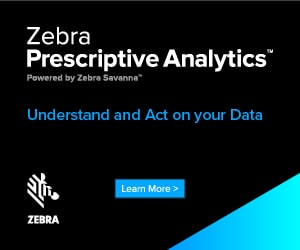
In a world where e-commerce reigns supreme, a buy-online, return in-store (BORIS) program is critical for customers and retailers alike. It adds convenience for customers who find mail returns daunting, and it eases the hassle of return logistics for the retailer, and presents an opportunity to upsell BORIS customers who enter the store.
But what if your BORIS customers are consistently not converting when they enter the store? It’s critical for loss prevention (LP) specialists to understand and leverage this data, as without intervention, this lack of conversions could cost you millions. The most obvious way this negatively impacts you is in terms of missed sales opportunities, but don’t forget that every BORIS customer that makes a purchase goes a long way in offsetting the processing and restocking costs of their return. Even beyond that, leveraging conversion data can tell you a host of other things about your company’s operational health. Here are three.
Fraud
Is a lack of BORIS conversions hard proof of fraud? By itself, no. But if you’ve ever found yourself bogged down in data looking for fraud, you’ll welcome anything that helps you narrow down the suspect pool. Once you begin analyzing BORIS conversion data, you can leverage it in your fraud investigations by taking a closer look at people who continuously make in-store returns without buying anything else. Many customers are likely to ask for a replacement item, creating a sale, and indicating that they genuinely needed the item. Someone who keeps returning e-commerce purchases without buying anything should be scrutinized, especially if you find evidence of any of the following:
- The products returned are high-value, premium brands or known theft targets.
- High quantities of items are being returned.
- The same item is being bought and returned over and over.
- The customer conducts returns across multiple stores per day.
- The customer consistently transacts with the same employee, indicating potential collusion.
An advanced analytics solution like prescriptive analytics can identify these correlations at lightning speed and alert you to investigate.
Wardrobing
Wardrobing is loosely defined as the practice of purchasing big-ticket items with intent to use them only short-term before returning them for a full refund. Common examples I’ve seen in the industry include formalwear (especially dress shoes) for a wedding or other big celebration, a fancy new TV to watch the big game, and even uniquely styled outfits for theater performances.
Then, of course, you have those customers who, not knowing their exact size or what the style will look like in person, purchase multiple versions of the same item knowing that they will return all but one. Regardless of root cause, wardrobing-type activities cost retailers billions of dollars per year and must be properly monitored and managed.
As with fraud, wardrobers tend not to make additional purchases when they make their return(s), making this data a golden opportunity for catching these serial returners. Additionally, wardrobing customers are rarely as profitable as the average customer, sometimes even dipping into negative overall profitability.
Once you’ve identified the culprits, you can intervene with appropriate action, whether it’s limiting the amount of returns they can make, restricting them from loyalty benefits, or whatever your brand-appropriate actions might be. Again, an advanced analytics solution that can cluster customer behaviors and automatically identify anomalies can help you pinpoint these offenders faster and easier than any report.
Training Opportunities
Everything you do in stores, from floor set design to associate training, is meant to encourage every customer that walks in to make a purchase. BORIS customers, who could have returned their items through other channels but chose to come into the store, should be looked at as a prime conversion opportunity by associates. When we shift the focus of analysis from customer behavior to associate behavior and if we’ve ruled out fraud, then a lack of BORIS conversion is a key indicator of a training opportunity.
Perhaps your associates need a refresher on upselling or cross-selling, or they need a simple reminder to engage with all returning customers and be on the lookout for an opportunity to sell, knowing that some customers like the ease of running in and out to make a quick return.
Alternatively, the store may not be properly executing on the planogram, meaning that BORIS customers can’t find the product they came into the store for. In any scenario, this presents an opportunity for you, as the LP professional, to partner with operations and help drive actions that address any training or process gaps. Any LP professional who can identify the root cause of missed sales opportunities is an invaluable business partner.
For more information on harnessing data with prescriptive analytics, visit the Zebra website.
About the Author
Scott Pethuyne is a member of the Industry Solutions team at Zebra Analytics. He comes from an accomplished background in asset protection with tenures at Justice, Ascena Retail Group, and Designer Brands (formerly DSW). He uses his intimate knowledge of AP strategies and the Zebra Prescriptive Analytics solution to show retailers how to combat fraud, drive efficiency, and strengthen revenue and margins with Zebra Prescriptive Analytics.




